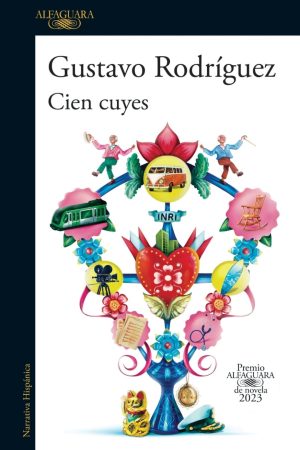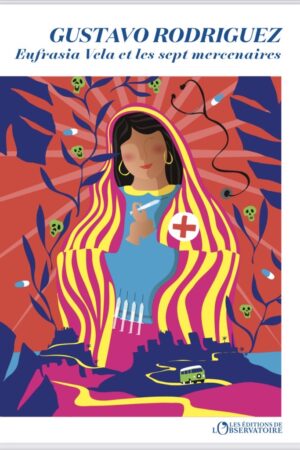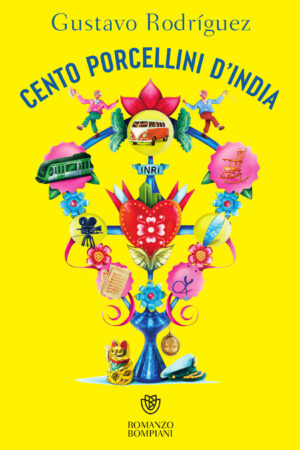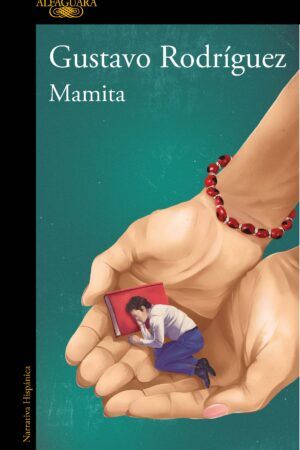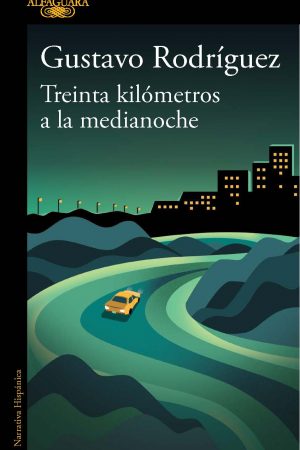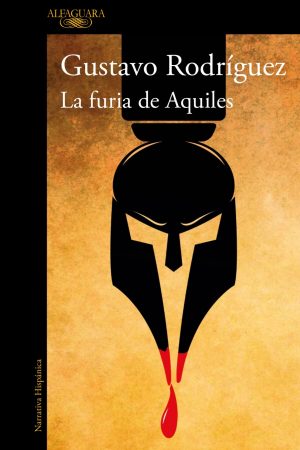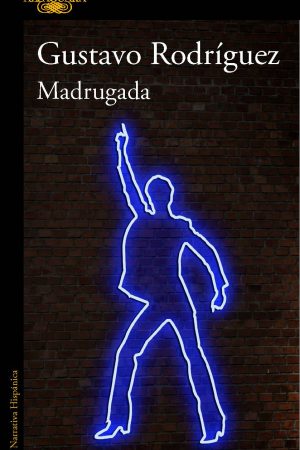One Hundred Guinea Pigs
Winner of the Premio Alfaguara 2023 (Alfaguara Novel Prize)
A tragicomic novel set in contemporary Lima, in a residential neighborhood with views over the Pacific Ocean, where a woman who cares for beloved elderly people must choose whether or not to become a merciful hitwoman.
Eufrasia, a woman pressed by economic needs in a country with big class gaps, has become essential company for some of them. If she managed to raise enough money to buy enough guinea pigs, she could start a new life, as her uncle always told her. So, every day, she travels across the city in public transportation to assist Doña Carmen, who also needs extra support because she’s been feeling down lately and has lost almost all touch with her daughter. Eufrasia is good with emotional support, so good in fact that she starts to work for another neighbor in the same building: Jack Harrison, a retired, widowed, and deeply lonely doctor who enjoys jazz and whiskey. She will also begin working at the neighborhood’s nursing home, where a group of elders have built a family and call themselves “The Magnificent Seven.”
Despite Eufrasia’s care, the lives of these characters are drowned in medication, bland meals at regular hours, TV movies, ailments, and the occasional conversation, only to remember that the end is around the corner. Eufrasia is aware of all this, and she also knows that her close relationship and the trust she has managed to establish with all of them will end up bringing her to a crossroads.
Request more informationCovers
Original Language
SPANISH (World) | Alfaguara/PRH
Translation Rights
ARABIC | Dar Kalemat
ENGLISH (World) | Charco Press
FRENCH | Éditions de l'Observatoire
GREEK | Klidarithmos
ITALIAN | Bompiani
Film Rights
Peruvian feature film rights sold. All other audiovisual rights & formats still available.
Prizes
Winner of the Premio Alfaguara 2023 (Alfaguara Novel Prize)
Reviews
“A tragicomic story, moving, crafted with skill and humor.” Claudia Piñeiro, author of Elena Knows
"Gustavo Rodríguez skillfully captures the metaphor of life as a passage to death, navigating it with a touch of humor and dignity, devoid of moralistic overtones or sensationalism." Karina Sainz Borgo, ABC
"Cien cuyes is a tragicomic novel about an important subject: our ability to care for the elderly in modern-day society and euthanasia as an option for dying with dignity. It is a fast-paced narrative with witty dialogue replete with references to film and pop culture. In addition to old age, Rodríguez’s story touches on a number of significant issues, such as the many gaps between the rich and poor in Peru, empathy, and the ability to form human bonds regardless of social differences. It is also a novel that confronts the reader with important ethical questions about the meaning of a life well lived. A remarkable talent, Gustavo Rodríguez is a writer to follow in contemporary Latin American literature." César Ferreira, World Literature Today
"Both classic and rhythmic, the story unfolds into a lively road trip through old age. A final whirlwind before the inevitable leap: this luminous novel is a compassionate tribute to hearts and bodies that are weary yet remain defiant in the face of decrepitude." Ariane Singer, Le Monde
"An appealing novel with an excellent plot development: endearing, moving, intelligent, and empowering." Fidel Molina-Luque, Segre
“Gustavo Rodríguez once again alternates between the good and the bad in life to reveal a horrible indecency. (…) Racism, economic inequality, and the contradictions of Peruvian society are elements that Cien cuyes inherits from the impressive Madrugada. That novel was like light, so one can again expect such luminous writing.” Juan Cruz, El Periódico de España
"A work where tragedy and comedy intertwine in the exploration of the passage of time, old age, and its contradictions. [...] A masterful development that allows the voice of his country in world literature to rediscover its place, breaking free from what seemed like an eternal adolescence." Octavio Gómez Milián, Zona de Obras
"In his ninth novel the writer reveals just how little attention is paid to the elderly in our society, and advocates for worthy representation, at the same time that he challenges the taboo that is dignified death and offers a portrait of structural classism and racism in Peru. These topics could be difficult to digest, but Rodríguez seasons them with a wit that points to an astonishing literary maturity and brilliance." Karen Montero, Coolt
“An ode to old age, a song to existence, and a tribute to those women who work, suffer, care, empathize, yearn, and, despite everything, survive.” Concha García, La Razón
“A story about the culture of caregiving, senectitude, the body, ageism, and death.” Luis Alemany, El Mundo
